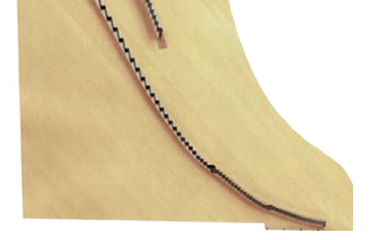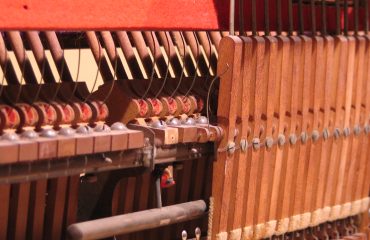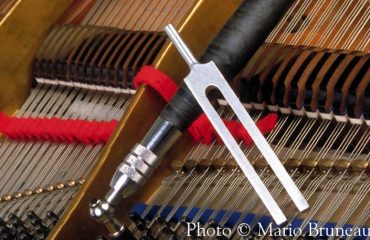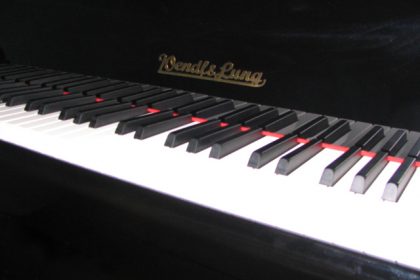
The piano is considered the king of all musical instruments. Invented in 1709 by the Italian Bartolomeo Cristofori (1655-1731), it was the first keyboard instrument that was able to produce dynamics that is, to play soft and loud hence its name pianoforte (piano = soft, forte = loud) Cristofori’s pianoforte was a rather delicate instrument but since then and with numerous improvements, it has become the rich and powerful piano we know today.
Improvements to its action from the single escapement to double escapement, the increased tension of the strings with the addition of the cast iron plate, the crossing of the bass strings running over the treble strings to permit a longer string length without adding to the total dimension are few examples of its evolution. Its construction’s complexity, the science involved in its design and the delicate balance between forces contributing to its sonority has always intimidate pianists. Although respected by the pianists, the piano remains the instrument least known of his interpreters hence the many myths surrounding its construction.
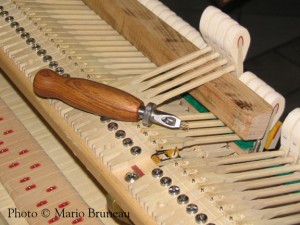 The consumer searching for a piano have no other choices but to trust the “seller” as the opinion of a pianist and/or teacher is necessarily subjective. The pianist friend is still very useful to judge the sound of an instrument when you can’t play it yourself.
The consumer searching for a piano have no other choices but to trust the “seller” as the opinion of a pianist and/or teacher is necessarily subjective. The pianist friend is still very useful to judge the sound of an instrument when you can’t play it yourself.
After the house and car, the piano is the third major acquisition incurred by a family. It is therefore important to chose it well. It will then become an investment. Due to its longevity, the piano is a family heritage bequeathed from generation to generation. Your grand children’s own children will still benefit from its musicality. The whole family can always count on this generous musical instrument to enliven the holidays, special occasions or to brighten the day.
Contrary to instruments where the musician must first learn to produce an adequate sound before interpreting a piece of music, the piano sounds great no matter what notes are chosen since it is the technician-tuner’s job the make it sound right. So your children’s contact and learning of music is thus made easier. Children’s hearing ability is far superior to that of adults. They are very sensitive to the sound of an instrument. Offering your children a bad piano can only contribute to its discouragement and at the same time, destroy an unrevealed talent.
A good piano will always find its place in your house. Even if no one plays (yet) in the house, it will be appreciated when an uncle musician comes to visit or a friend’s professional musician. Only then will you be proud of your purchase.
The piano is one of the finest family estates.
It follows your family over many generations.
Mario Bruneau
© Copyright – 1997 – All rights reserved

